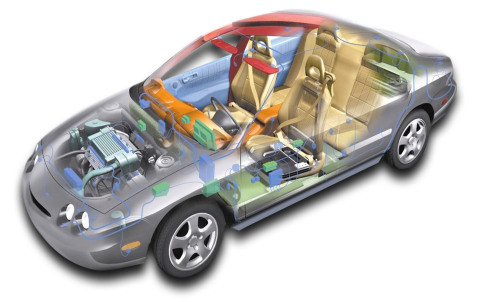The Institute for Advanced Systems Engineering (IASE) promotes the cross disciplinary research and education in systems engineering at the University of Central Florida, and is committed to developing advanced solution methodologies and tools for basic and advanced systems problems in a variety of application domains.
- The Institute for Advanced Systems Engineering (IASE) is an interdisciplinary education and research unit in the Department of Industrial Engineering and Management Systems at the University of Central Florida.
- IASE is home to cross disciplinary education and research programs in systems engineering, and is committed to developing advanced solutions and tools for systems engineering problems in a variety of application domains.
- IASE projects are conducted through partnerships with industry leaders and government, bringing together faculty and students from multiple academic departments and colleges across the university and Central Florida industry partners.
IASE Mission
To educate the future systems engineering workforce that is needed to tackle society’s most pressing technology challenges and to serve the systems engineering community at large in the state of Florida and around the world by:
- Delivering on-campus and on-line undergraduate education in systems engineering
- Providing access to experienced researchers in multiple disciplines of engineering
- Conducting leading-edge research projects jointly developed by industry leaders and university experts
- Exchanging ideas and collaboration among academia, industry and government on crucial systems engineering issues
IASE was established at University of Central Florida to advance and support central Florida research in Systems Engineering.
Why Systems Engineering?
Intelligence is being infused into everyday systems, processes and infrastructure that enable physical goods to be developed, manufactured, bought and sold. These same systems also facilitate the movement and delivery of global products and services that support worldwide markets such as finance, energy resources and healthcare systems.
With these technological advancements, comes a new level of complexity, as organizations struggle to integrate systems, processes and data feeds. As a result, the demand for systems engineering and related skills is expected to grow significantly.
Systems engineers design and implement computer systems, software and networks, including defining complex system requirements, and determining system specifications, processes and working parameters. Their overall objective is to ensure that system hardware and software support human performance and business outcomes.
Leadership in Research & Innovation
The University of Central Florida (UCF) offers both undergraduate and graduate education in systems engineering through the IASE, using the same IBM software used by leading organizations around the world to specify and develop sophisticated software and systems.
IASE is currently involved in various research projects:
• Innovative Healthcare Solutions
• Energy Systems
• User-Centered Smarter Cities
• Advanced Control Systems
• Systems Engineering Methodologies
• Energy Management Systems
• Human Performance Modeling
• Human Systems Integration
• Business Process Optimization
• Intelligent Decision Support Systems
• Simulation and Modeling
IASE offers a productive and stimulating collaboration between the University of Central Florida, industry and government to conduct research to solve challenges facing industry and business, and to educate the next generation of systems engineers in the workforce to meet the demands in future technology fields. Industry members benefit from:
• Access to experienced researchers in multiple disciplines of engineering at the University of Central Florida
• Leading-edge research projects jointly developed by industry leaders and university experts
• Interchange of ideas and collaboration among academia, industry and government on crucial systems engineering issues
Selected Research Projects
- Human Systems Integration: Development Based on SysML and the Rational Systems Platform

- Measuring Human Systems Integration Return on Investment
- Interactive Management of Human Factors Knowledge For Human Systems Integration Using SysML
- Human Systems Integration Modeling
- Model-Based Systems Engineering Approach to Sustainable Development and Human-Centered Sustainability
The Visionary Human Systems Integration (HSI) Research
HSI is the area of systems engineering that focuses on the human component of every system to help resolve system designs that do not adequately consider the human aspect, thus resulting in poor mission performance and unnecessarily high costs. Human systems integration is the interdisciplinary technical and management processes for integrating human considerations within and across all system elements; an essential enabler to systems engineering practice. This research seeks to develop a Human Systems Integration software component to be integrated with SysML/UML based on IBM’s rational unified platform. The Human Systems Integration component in systems engineering recognize the human as an integral element of every system and ensures that human considerations have a prominent place in the integrated design and development of systems, and throughout the total system life cycle.